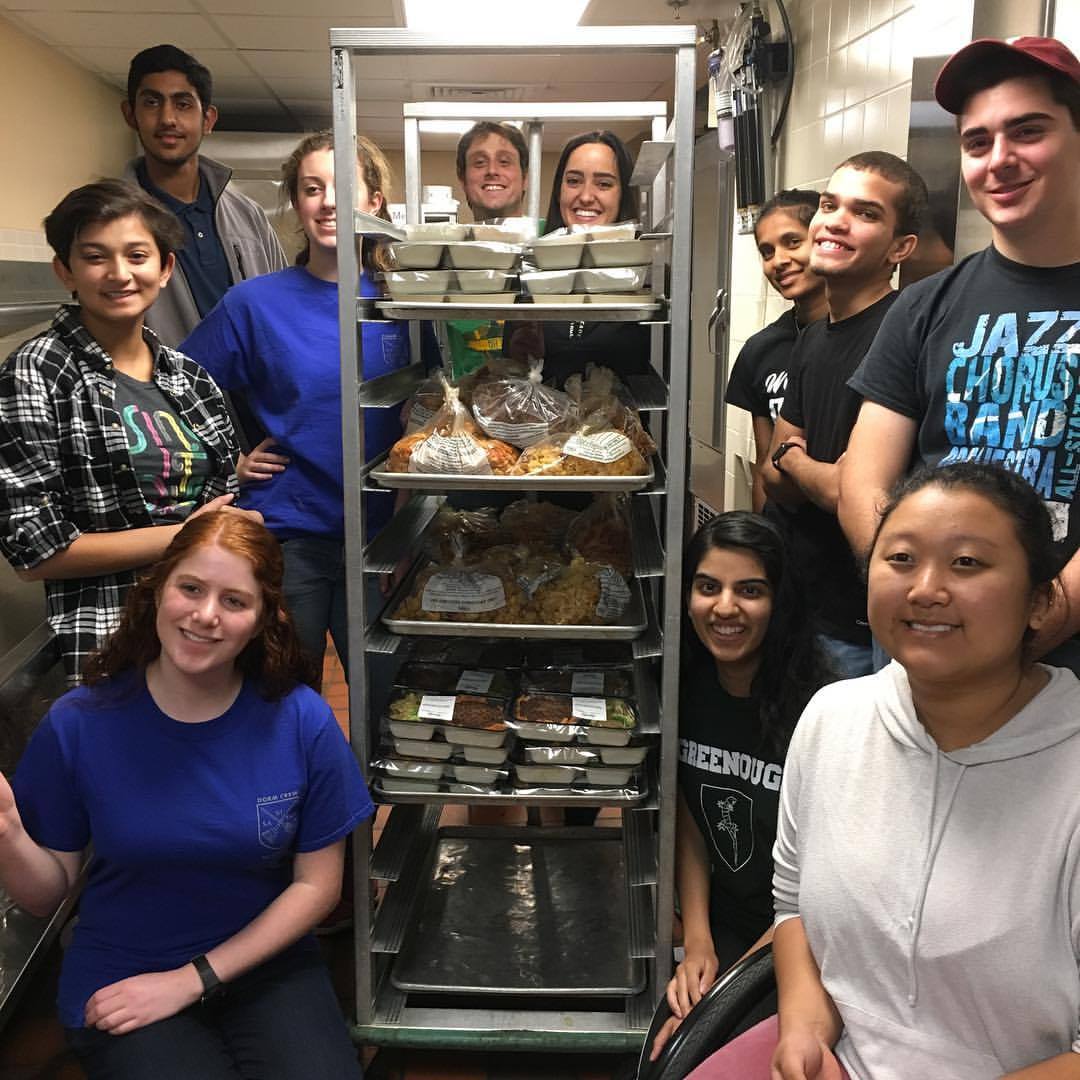Heat-N-Eats Program
In the USA, roughly one third of food is wasted; in Massachusetts, one in ten individuals are food insecure.
Background
In the fall of 2014, HUDS began donating hot foods that were not eaten by the end of meal service to Food for Free. Three years later, HUDS enhanced the donation program by adding a new element: taking the same leftover food from one dining hall and portioning it into nutritionally-diverse, single-serve microwavable meals called Heat-N-Eats. These meals are distributed to residential hotels and shelters in the area where food insecure individuals live but do not do not have traditional kitchen space to prepare healthy food.
In the 2023-24 school year, HUDS' prepared more than 2,290 such meals at our kitchen in Annenberg dining hall.
What We Do
At the Heat-N-Eats Program, volunteers work in Annenberg’s kitchens to repurpose leftover food into meals with dignity – balanced meals of complementing proteins, starches and vegetables.Completed meals are then picked up by Food for Free and shared with individuals and families in the surrounding area.
How To Help
HUDS invites Harvard students to participate in plate-ups several evenings a week after dinner service. The Heat-N-Eats Program is led by three Food Literacy Project (FLP) Food Recovery Fellows who educate volunteers about the environmental and social context of food waste.
To sign up for a volunteer shift, visit: https://harvardheatneats.setmore.com
Questions? Email huds_heatneats@harvard.edu. Volunteers are limited to Harvard ID holders.
An Award-Winning Program
The Heat-N-Eats Program (formerly known as Family Meals) has won a variety of awards, including the Cambridge City of Commerce Visionary Award in 2017 and a medal from the National Association of College and University Foodservice in 2018.


